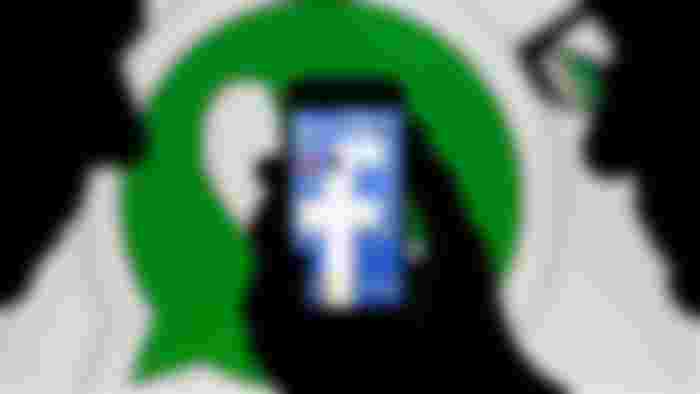The new confidentiality agreement suddenly brought WhatsApp to the country's agenda. Why trust which trio of WhatsApp, Telegram, Signal while breaking the download record for alternatives? What is open source software, end-to-end encryption that comes into our lives?
WhatsApp, which has been on the agenda with its new user agreement, is now sharing its popularity with alternative applications, at least for now. Telegram and Signal stand out among messaging apps.
So much so that these two alternative applications are among the top three among the most popular free applications in the App Store on iOS. We, who tried to explain their troubles by SMS, somehow fell into a lot of messaging applications ...
While WhatsApp gives us a deadline until February 8 to accept the new terms, this move; In addition to being seen as an “imposition” and getting reaction, it also raises concerns as it means that the data of its users will be processed. So what is the situation with alternative applications?
TELEGRAM:
Telegram was the first address of those who escaped from the new WhatsApp version. Telegram, which has a large audience, though not as much as WhatsApp, was founded in 2013 by Russian programmer Pavel Durov. I guess it wouldn't be wrong to call himself the Russian version of Mark Zuckerberg. Because Durov is also the founder of Facebook-like VK, which is mainly used in Russia and the former USSR countries. Telegram claims that it has never shared data with any 3rd party, including governments.
SIGNAL:
Signal is known as Elon Musk's recommended messaging app. Signal, co-founder of Brain Acton, who resigned three years after WhatsApp was acquired by Facebook, stands out as an open source app and says it secures users' correspondence by making end-to-end encryption.
END-TO-END ENCRYPTION
End-to-end encryption is a communication system that can only be read by endpoint users (ie only the sender and the recipient). Its goal; To prevent potential intruders in between, such as internet providers and network administrators, from accessing the keys required to decrypt.
End-to-end encryption is important because, with the latest update, the fear of WhatsApp was based on the thought of "Will our conversations be shared with third parties, governments, companies". Of course, while WhatsApp, or rather Facebook's imposing attitude, was also reacting, the violation of privacy was the main concern.

Your messages, video or audio calls, photos and all files you share with the other party in WhatsApp are encrypted. So technically, nobody can see them except you and the person you're messaging. WhatsApp cannot read your messages, but it will share by processing data such as who you message, how often and where, which networks you connect to, and the features of your device. In fact, WhatsApp, which shared these, has already put the situation into a contract.
Of course, we do not know that your conversations, which are hidden with end-to-end encryption, will not be hidden as before at some point, but in theory, WhatsApp is quite safe in terms of messaging content.
OPEN SOURCE CODE SOFTWARE
In open source software, the copyright owner of the source code provides the rights to use, review, change and distribute the software to anyone who wishes to do so, for whatever purpose. While Firefox, Chrome, Android, Open Office and Linux-based operating systems stand out as open source software; Many examples of proprietary software include Microsoft Office, Windows, Mac Os, iOS Photoshop.
It was a big problem that messaging apps were reading our conversations in the past, but in 2013, activist and encryption expert Moxie Marlinspike's encryption protocol called “Signal Protocol” went down in history as a revolutionary step. In this system, which will also be known as end-to-end encryption, the speech and chat content remains only on the devices of two people communicating. After the system, whose reliability has been proven over and over again, the application called "TextSecure" and "RedPhone", the technology started to take the stage in an optimum way.
ROADS CROSSED!
In 2016, WhatsApp reached out to Moxie and his team and stated that they wanted to switch to this Signal Protocol. Moxie's team has successfully integrated this protocol into practice. Here Brian Acton and Moxie Marlinspike's paths were monks. Acton resigned from the company he founded, due to the desire of the Facebook management to make money on WhatsApp and the steps taken in this direction. On Signal, Moxie became Marlinspike's partner. On March 21, 2018, “It's time. #FacebookuSil ”posted.

WHERE IS THE TELEGRAM AT?
Telegram uses MTProto, which is developed by itself, not the Signal Protocol. This encryption, which only comes into play when you click on the "Start Secret Chat" option within the application, cannot be tested by security researchers because it is not open source. Trust comes into play here. We know that WhatsApp also uses end-to-end encryption at this point, upon its statement. In other words, the mass, who has switched in the light of the latest developments, now has to rely on Telegram, not WhatsApp. Or you can develop theories and argue that Signal is actually not that secure either!
The best thing here is to use all applications consciously. In free services where the product is the users, it is useful to try to be a careful user as much as possible, regardless of the application, in order not to be completely product.
We asked technologist Ahmet Alphan Sabancı three questions about instant messaging applications.
What should people look for when choosing a personal messaging app?
We have expectations such as security and privacy from a messaging app. By increasing our digital literacy, we should examine applications in detail and pay attention to factors such as who stores data and where.
It turned out to be a huge awareness about the protection of personal data with WhatsApp in Turkey. Are you surprised at this?
This is actually like a result of little by little accumulation for years. It was on the agenda in the world with the Edward Snowden incident.
Such a reaction arose when we started doing everything from our work to our school for the last 1 year on WhatApp. Frankly, I was surprised and pleased with this reaction. However, if it becomes the agenda, some changes may occur and we can reach the data security laws abroad, examples of which we envy.
Didn't Facebook already use many of our personal data via Instagram and Facebook anyway ...
In the eyes of people, Whatsapp was always seen as a separate place. The fact that Facebook will use the data here and follow us has multiplied that panic with the increase in the frequency of use of the application with the pandemic.
WHO WANTS WHICH INFORMATION?
Signal is requesting phone number information. WhatsApp stands out as the most demanding applications. On the other hand, in terms of security, all three applications (although only in secret chats in Telegram) claim to have end-to-end password technology.



